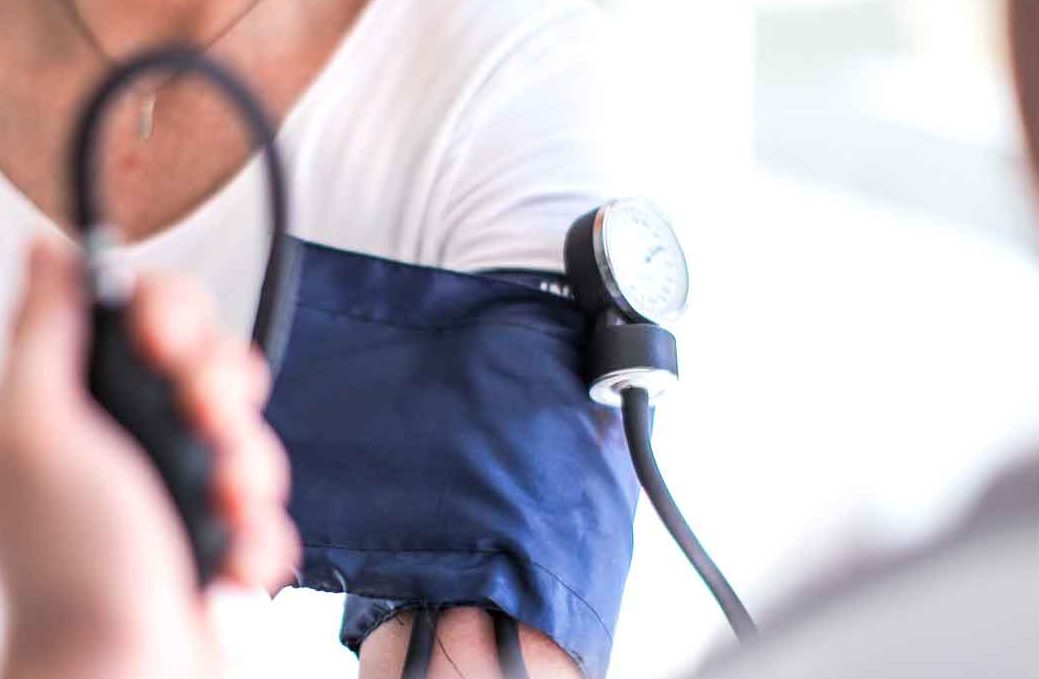What Causes High Blood Pressure?

Learn what causes high blood pressure so you can take action to control risk factors whenever possible and keep your blood pressure in the healthy range.
If you have high blood pressure, also called hypertension, the blood flowing through your arteries is traveling with too much force, putting pressure on arteries and potentially causing microscopic tears over time. Hypertension may not cause any noticeable symptoms. But if it’s chronic and goes untreated, the condition can damage kidneys and vision and result in stroke, heart failure, and other serious health problems.
Nearly 120 million American adults have hypertension (usually defined as blood pressure chronically higher than 120/80), according to the Centers for Disease Control and Prevention, and many are unaware they have the condition.
If you learn what causes high blood pressure, you can often lower your risk of developing this common disorder through lifestyle changes. And if you already have hypertension, you can gain a better understanding of how to get your blood pressure under control to protect you from medical complications down the line.
YOU MIGHT ALSO LIKE: Our Heart Care section
What causes high blood pressure?
High blood pressure causes you can modify
You can change these factors associated with causing hypertension:
- Not getting enough physical activity. A sedentary lifestyle increases your risk of developing high blood pressure.
- Being overweight or obese. Excess weight can strain your heart and circulatory system, leading to high blood pressure, as well as other serious health problems, such as heart disease and diabetes.
- Consuming too much sodium. A diet high in sodium (from adding too much salt to meals or eating sodium-loaded packaged and fast foods) can trigger hypertension in some people.
- Smoking. Smoking causes blood pressure to temporarily soar and can contribute to damaged arteries.
- Drinking alcohol to excess. Regular, heavy use of alcohol can cause blood pressure to spike dramatically.
- Chronic stress. Everyone has stress from time to time, but excessive stress can cause blood pressure to increase significantly. What’s more, the American Heart Association points out, chronic stress can lead to behaviors such as drinking too much alcohol, physical inactivity, and eating an unhealthy diet — all of which contribute to hypertension.
Medical causes of high blood pressure
Some high blood pressure cases are secondary hypertension, meaning that another medical condition causes elevated blood pressure. For example, some women develop hypertension during pregnancy. Certain kidney disorders and heart defects can cause high blood pressure, too.
Other medical causes of secondary hypertension include sleep apnea, hyperthyroidism, and adrenal gland tumors.
The National Heart, Lung and Blood Institute (NHLBI) notes that treating or resolving medical causes can usually normalize high blood pressure.
High blood pressure risks you can’t change
Not all causes of high blood pressure are in your control. For example, if high blood pressure seems to run in your family, you may have a genetic risk, according to the NHLBI. That doesn’t mean you are doomed to have high blood pressure, however.
You may have inherited a sensitivity to salt that makes sodium raise your blood pressure substantially — so a low-salt diet can help keep your blood pressure in check. And if you do have hypertension despite diet changes, medication can often treat it successfully.
You can’t control growing older and, as blood vessels lose some of their elastic quality over the years, there’s an increased risk of developing high blood pressure. Gender also plays a role in hypertension. Until men are 64, they are more likely to develop hypertension than women but, after age 65, women are at an elevated risk.
African Americans are more likely to develop high blood pressure than other racial and ethnic groups in the U.S., too, and the condition tends to be more severe.
If you have high blood pressure — no matter what caused it — being aware of your condition and getting treated with lifestyle changes and medication, if needed, can help protect your health and improve your quality of life for years to come.
Updated:
March 08, 2023
Reviewed By:
Janet O’Dell, RN